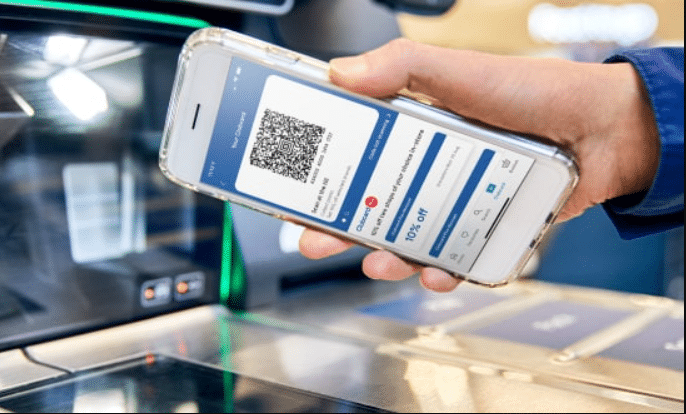
Older shoppers and “anyone unable to afford a smartphone, or who chooses not to use one, could be at risk of being excluded” from the best grocery deals.
Sound familiar? It’s a debate that’s been taking place in stores, online and in several U.S. statehouses over the past couple of years. And now it’s a debate that’s playing out overseas as well.
The above quote is from the UK’s Daily Telegraph, in a new article entitled “Thousands locked out of supermarket loyalty discounts: Shoppers without smartphone apps could pay disproportionately more.”
It’s not necessarily a brand new debate, but as the issue gains momentum in the U.S., it’s a sign that concern about discrimination against the digitally-disengaged is spreading.
“Stores risk penalizing older and vulnerable shoppers by reserving their best deals for customers who use smartphone apps,” the article begins. It goes on to spell out concerns that have become familiar to American shoppers who’ve been following the debate here – more grocery deals are becoming digital-only, a portion of the population lacks digital access or know-how, and those shoppers end up paying more while the digitally-connected pay less.
But there’s an added wrinkle over there. In both the U.S. and UK, you need to be a member of a store’s loyalty program to access digital coupons and many stores’ best sale prices. And you need digital access to activate many of those deals before you shop. But in the U.S., you don’t need to be online just to be a loyalty program member. In the UK, you often do.
Britain’s largest grocery chain, Tesco, still issues plastic loyalty cards to those who prefer them to the store’s app. But increasingly, the Telegraph points out, the retailer is reserving some of its best deals for shoppers who use the app. Lidl and Walmart-owned Asda, meanwhile, have digital-only loyalty programs, so if you don’t have the stores’ apps, you don’t get the deals. And the grocery chain Morrisons went digital-only with its loyalty program a few years ago, retiring its physical cards altogether, though the Telegraph notes that the retailer has relented a bit, by allowing determined shoppers to pursue a cumbersome application process to have a physical card mailed to them.
“With such high levels of over-75s not using the internet, let alone having a smartphone or being able to understand how apps work, you’ve got a huge proportion of what can be a very vulnerable part of society who cannot get access to [certain deals],” Caroline Parkes, chief strategy officer at the global marketing agency RAPP, told the newspaper.
The concerns come amid a larger reckoning over grocery deals in the UK. But this is where the UK and the U.S. debates diverge somewhat. In the U.S., the conversation has focused on ways to make digital-only deals accessible to all shoppers, while in the UK, they’re debating the fairness of loyalty programs themselves.
Earlier this year, the UK government’s Competition and Markets Authority launched an investigation into grocery loyalty programs, to examine a number of concerns – are shoppers being improperly coerced into handing over their personal information, and punished with higher prices if they don’t? Are loyalty offers really as good as they claim to be? And are some shoppers disadvantaged by the very existence of loyalty programs? And by that, they don’t mean just elderly or low-income shoppers – what about teenagers forced to pay full price for their own purchases, because they can’t join certain loyalty programs until they turn 18?
The related debate in the U.S. is currently focused on access to digital coupons. Six states so far are considering proposed legislation aimed at helping those who are unable to go online to clip digital coupons. Some proposals would mandate that retailers offer some kind of alternative that would allow shoppers to access digital coupons in store, while others – including a new one in New York introduced just last month – would mandate that all digital coupons be applied automatically to virtually all shoppers’ purchases. None of the proposals are questioning the fairness of loyalty programs themselves, but given what’s happening in the UK, anything’s possible.
Many shoppers prefer apps and digital deals for their convenience, while many retailers prefer them for the valuable customer data they provide. But until someone comes up with a plan to please everyone, this is a debate that’s unlikely to die down any time soon.
Image source: Tesco










